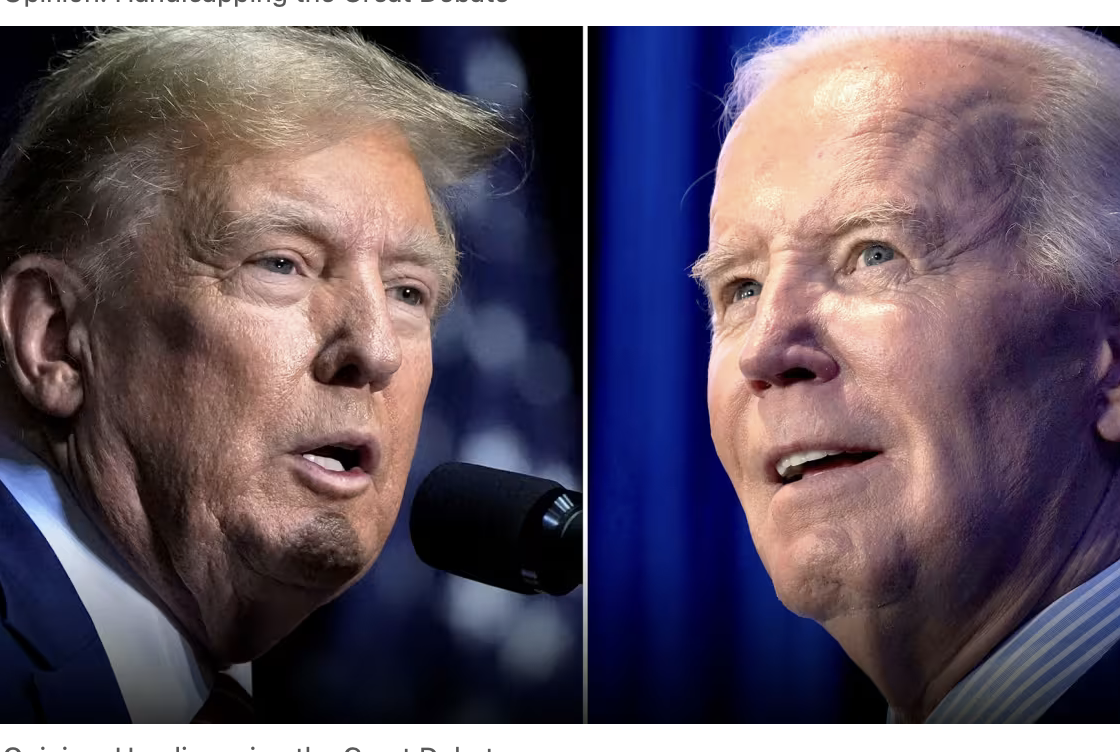Biden’s costly rules and spending made inflation worse. The challenger would foster growth.
The May consumer-price index showed a stubborn 3.3% increase in prices during the past 12 months. That is too high for affordability—and for rate cuts, given the Federal Reserve’s rigid 2% inflation target. With oil and gasoline prices rising again, inflation and affordability are crucial election issues. Bill Clinton won the presidency in 1992 on the mantras that “it’s the economy, stupid” and that change is better than “more of the same.”
The Biden administration has argued against change. At first, it said inflation would be transitory. That idea was supported by the Federal Reserve, but like so many of the Fed’s inflation models, it didn’t pan out. The administration then blamed the supply chain, “shrinkflation,” corporate greed and Donald Trump.
Shrinkflation didn’t work because the CPI takes smaller package size into account. The corporate-greed complaint wasn’t supported by the data. An exhaustive Fed study last month disproved it: “Aggregate markups have stayed essentially flat since the start of the recovery.”
President Biden’s claim that he inherited 9% inflation from Mr. Trump was even shorter-lived. A New York Times article labeled Mr. Biden’s assertion false: “Year-over-year inflation was 1.4 percent in January 2021, when Mr. Biden took office. It peaked at 9.1 percent in June 2022, more than a year into his presidency, and has fallen to 3.3 percent in May.”
Mr. Biden has blamed everything except the actual cause: expensive regulations and massive government spending. Donald Trump’s approach to inflation, should he return to office, is likely to be different: Let markets produce more so that growth goes up and prices go down. This would enable interest-rate cuts, lowering mortgage rates and housing costs.
Lower inflation and lower interest rates aren’t rocket science. They require more growth and output, not less. Mr. Trump plans regulatory changes in the energy sector to allow more production. He likely would reverse Mr. Biden’s ban on liquefied natural gas exports, encourage nuclear power, use increased U.S. output to resupply the Strategic Petroleum Reserve (which Mr. Biden depleted during the 2022 midterm elections), and take steps to increase U.S. energy output and strengthen the electricity grid.
At its heart, Mr. Biden’s approach to inflation is antibusiness and intensely anti-energy. It comes across as part of a bigger effort to blame American institutions, markets and businesses for the downward spiral created by big government. Anything to avoid admitting that big-government policies are directly causing price increases and putting the electricity grid at risk.
The administration’s latest plan is more of the same. The Congressional Budget Office estimates that the administration’s new budget, submitted in March, will cause $85 trillion in spending over the next 10 years, $63 trillion in taxes and a $22 trillion increase in national debt. All are record amounts that undermine growth and production. It’s a circular process: Giant increases in government spending and national debt prop up consumption but cause inflation. The world, especially China, sees a nation chasing its tail and the dollar system at risk.
Mr. Trump has made clear that he would bring positive change by reducing harmful regulations, taxing much less than Mr. Biden, encouraging private-sector investment and defending the dollar. Markets are forward-looking, so the benefits would spread quickly through the economy. Prices and interest rates could decline relatively quickly, helping consumers make a comeback.
Mr. Malpass is a distinguished fellow in international finance at Purdue’s Mitch Daniels School of Business. He served as president of the World Bank, 2019-23, and undersecretary of the U.S. Treasury, 2017-19.
To see this article in its entirety and to subscribe to others like it, please choose to read more.
Source: For Trump as for Clinton, It’s Still the Economy, Stupid – WSJ
 Listen Online
Listen Online Watch Online
Watch Online Find a Station in Your Area
Find a Station in Your Area









 Listen Now
Listen Now Watch Online
Watch Online
